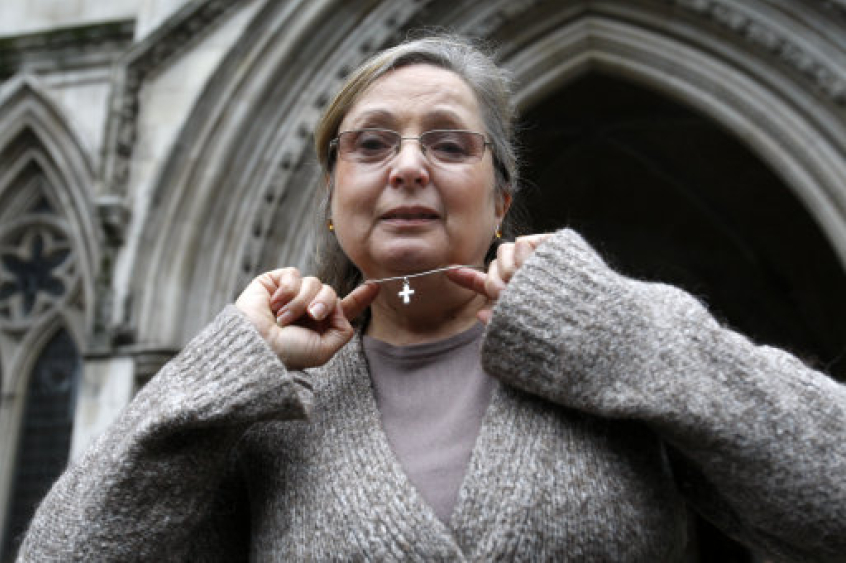
British Airways check-in worker Nadia Eweida has won the right to wear a cross at work.
The landmark ruling was made by the European Court of Human Rights Today.
The court found that Eweida had been discriminated against at work because of her beliefs and that her rights had been violated under Article 9 of the European Convention on Human Rights.
In its judgement, the court said it was a "fundamental right" to be able to manifest religion.
The court said this was because "a healthy democratic society needs to tolerate and sustain pluralism and diversity; but also because of the value to an individual who has made religion a central tenet of his or her life to be able to communicate that belief to others".
The Government contested the legal challenge despite David Cameron saying publicly that Christians should be allowed to wear the cross at work. The Government argued that protections for religious freedoms apply only to the private sphere.
Three other Christians lost their religious freedom cases at the court.
They included nurse Shirley Chaplin, who was taken off ward duties for refusing to remove a cross necklace that she had worn to work for 30 years.
The court ruled that the hospital had the right to refuse permission to wear a cross because there were health and safety concerns.
"The reason for asking her to remove the cross, namely the protection of health and safety on a hospital ward, was inherently of a greater magnitude than that which applied in respect of Ms Eweida," the judgement read.
"Moreover, this is a field where the domestic authorities must be allowed a wide margin of appreciation.
"The hospital managers were better placed to make decisions about clinical safety than a court, particularly an international court which has heard no direct evidence."
Gary McFarlane, a relationships counsellor, and Lillian Ladele, a registrar had both asked their employers to accommodate their religious conscience.
Ms Ladele was disciplined by Islington Council, in London, for refusing to perform same-sex civil partnership ceremonies. Her lawyers argued that employers should make "reasonable accommodation" for religious beliefs.
Mr McFarlane was sacked for gross misconduct by the charity, Relate, after he said that he would not be able to provide sex therapy to same-sex couples.
Responding to the judgements, the Archbishop of York Dr John Sentamu said Christians and those of other faiths "should be free to wear the symbols of their own religion without discrimination".
"Christians are not obliged to wear a cross but should be free to show their love for and trust in Jesus Christ in this way if they so wish," he said.
"The Equality Act 2010 encourages employers to embrace diversity – including people of faith.
"Whether people can wear a cross or pray with someone should not be something about which courts and tribunals have to rule."













